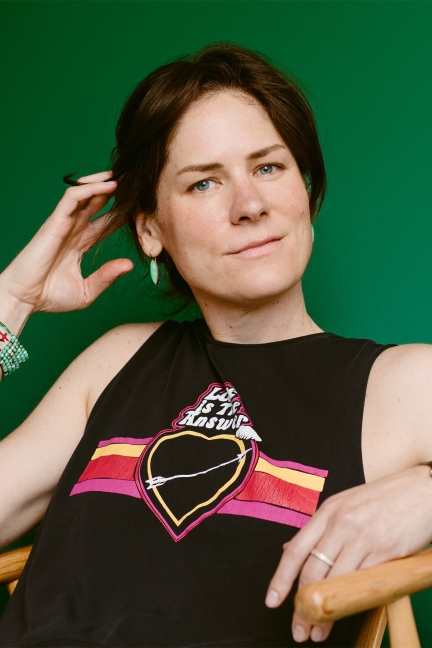Heartache and Hilarity: A Guest Post by Hannah Pittard
A college professor goes down an existential spiral when her ex-husband puts her life on display in his new book. Cheeky, hilarious and heartbreaking — Hannah Pittard’s novel is the perfect summer read for fans of literary fiction and magical realism. Read on for an exclusive essay from Hannah on writing If You Love It, Let It Kill You.
If You Love It, Let It Kill You: A Novel
If You Love It, Let It Kill You: A Novel
In Stock Online
Hardcover
$25.99
$28.99
A refreshingly irreverent novel about art, desire, domesticity, freedom, and the intricacies of the twenty-first-century female experience, from the acclaimed writer Hannah Pittard
A refreshingly irreverent novel about art, desire, domesticity, freedom, and the intricacies of the twenty-first-century female experience, from the acclaimed writer Hannah Pittard
I started writing IF YOU LOVE IT, LET IT KILL YOU almost accidentally. When I heard that my ex-husband’s debut novel would soon be published – and that it would include a less than flattering depiction of a woman who sounded a lot like me – I googled him, which is something I hadn’t done in years. I discovered a story he’d written in which a different version of a woman – who also sounded a lot like me – was knifed to death by a homeless man. The day I read that story, I started writing this book, which is a performance of the angst and anxiety I felt when I discovered my persona had been coopted – and killed! – by my ex. In general, I think a lot about time, its passage, and the way our identities shift and morph with age and exposure to new people and different experiences. That someone else – another writer, in this case my ex – would use me as fodder for his fiction was something I hadn’t before considered.
In a Paris Review interview, Philip Roth said that “concocting a half-imaginary existence out of the actual drama of my life is my life.” To a certain extent, IF YOU LOVE IT, LET IT KILL YOU is a dramatization of the mundanities of my everyday life. At the same time, it’s an acknowledgement of the various ways in which writers (and I include myself here) trespass and distort reality, perhaps in an effort to orient themselves in a fast-changing, often isolating world. We’re taught that tragedies end with death and comedies end with union. But what do we do with our own lives? Our own slow-passing days? How can we possibly categorize our various selves until the end? I think this book is my way of conceding a certain lack of control – of intention, of perception, of self.
I hope readers connect with this novel’s heartache and hilarity (two wildly over-used words!), but I also hope – I don’t know – I hope this book might inspire a certain kind of reader to look twice at a stranger walking in the opposite direction or take the long way home and drive or walk a little more slowly than they typically do. You know: listen to the wind, watch the clouds, notice the bumblebees bouncing on the lavender… I suppose I want readers to realize what I’m realizing and reminding myself constantly: that this—this!—all around us, right now, is our life…

